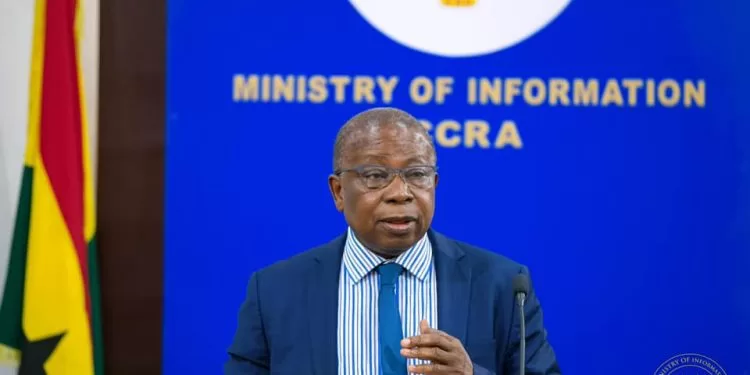Ghana’s investments in reproductive health service delivery have started yielding positive outcomes, Kwaku Agyeman-Manu, Minister for Health, has said.
Agyeman-Manu disclosed this in a speech read for him during the general meeting of the global Reproductive Health Supplies Coalition (RHSC) meeting in the Ghanaian capital on Thursday, October 19.
The Accra meeting was to examine the impact of the COVID-19 pandemic on funding for reproductive health supplies and related markets.
The minister said Ghana’s achievements had been through collaborations with partners such as the United Nations Fund on Population Activities and the West African Health Organization, among other partners.
“These collaborations, combined with our sustained commitment, have resulted in significant demographic shifts, notably a marked decline in births per woman,” the minister stated.
According to the Ghana Demographic and Health Survey 2022, total birth per woman declined from 6.4 in 1988 to 4.2 in 2014. Also, the 2021 Population and Housing Census said household sizes declined from 4.4 in 2010 to 3.6 in 2021.
“These strides have had a ripple effect, culminating in a decline in maternal mortality. We take pride in our health advancements. Ghana’s progress in maternal and child health has been noteworthy, but we recognize the journey ahead,” said Agyeman-Manu.
The minister said Ghana would continue to deepen investments in reproductive health service delivery to accelerate the drive towards achieving the SDGs and enhance the ability of families to make the right reproductive choices.
For that, he said the West African country would remain a devoted partner of the RHSC to ensure positive transformations in Ghana’s healthcare landscape.
About 300 world leaders and experts in reproductive health supplies are attending the five-day RHSC meeting co-hosted by the Ghana Health Servi, which some believe are lifesaving products.
Martyn Smith, Director of RHSC, said reproductive health supplies suffered some difficulties over the past four years due to the COVID-19 pandemic, which also caused the meeting to be postponed from 2020 to 2023.
He lauded Ghana for its resilience in reproductive health services, even during the pandemic.















































